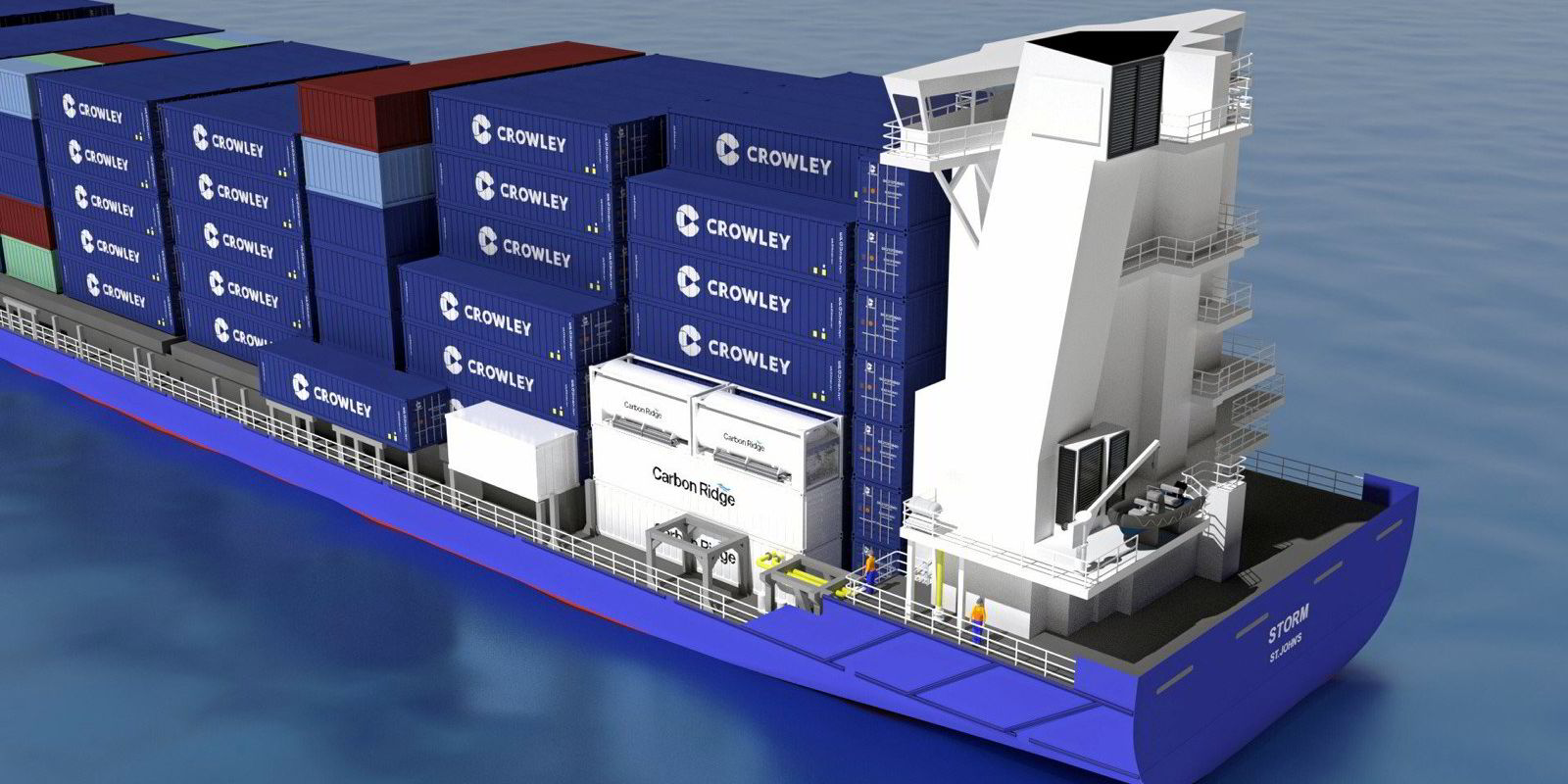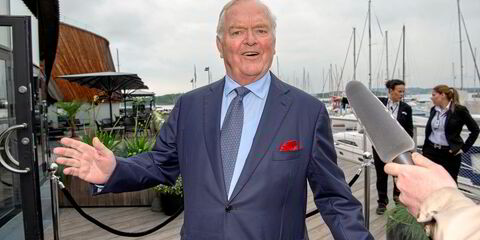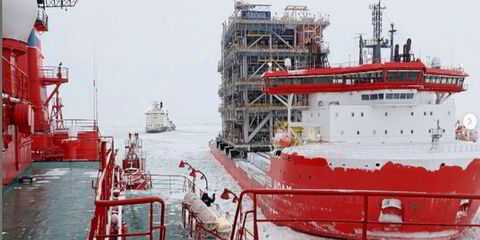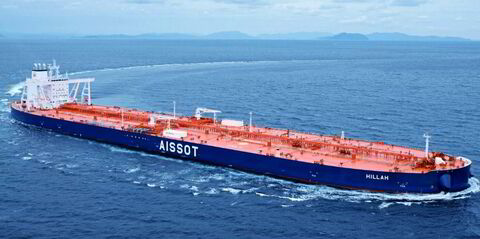Crowley has teamed up with technology firm Carbon Ridge on a pilot project to install a carbon capture and storage system on a small container ship.
The Florida maritime conglomerate said the effort to install the system on Crowley’s 972-teu Storm (built 2008) also has the support of the US Maritime Administration (MARAD).
The two companies have signed a cooperation agreement with MARAD that will involve operating, measuring and optimising the modular Carbon Ridge system on the ship in a real maritime environment — first in port and ultimately at sea.

Crowley said the project will involve engineering and installing a small-capacity version of Carbon Ridge’s second-generation system.
Brett Bennett, senior vice president and general manager at Crowley Logistics, said the effort will help spearhead shipping’s journey to cleaner operations.
“This is a strong step forward to understanding and achieving our commitment to reaching net-zero emissions as part of our sustainability strategy,” he said in a statement.
Carbon Ridge, a California-based technology company developing modular carbon capture systems, has Crowley among its maritime industry investors. TradeWinds reported last year that it had signed a memorandum of understanding with New York-listed Scorpio Tankers to potentially use one of that company’s vessels for a pilot project.
Chase Dwyer, chief executive of Carbon Ridge, said the installation on the Storm represents a “milestone” in the technology’s development.
“With its potential for significant emissions reductions through retrofitting or during newbuilding, shipowners and operators have the opportunity to future-proof their vessels for incoming regulations, as well as reach internal goals for decarbonisation and reduced emissions impacts,” he said in a statement.
Installation on the Storm is expected next year.
Crowley’s engineering services group is leading the integration of the pilot system on the vessel, which connects the US with ports in the Caribbean.
The system will be housed in 40-foot containers on the ship’s deck, with an additional 20-foot tank unit storing captured liquid CO2.
The companies expect the system to produce a tonne per day of CO2.
MARAD, the US government agency covering US shipping, is involved through its Maritime Environmental and Technical Assistance programme.
“MARAD is pleased to work with industry partners through META to demonstrate innovative technology applications that may lead to greater greenhouse gas emission reductions in the maritime sector,” Daniel Yuska, director of the MARAD Office of Environment and Innovation, said in a statement.



